- Home
- Aharon Appelfeld
Unto the Soul
Unto the Soul Read online
BOOKS BY AHARON APPELFELD
Badenheim 1939
The Age of Wonders
Tzili: The Story of a Life
The Retreat
To the Land of the Cattails
The Immortal Bartfuss
For Every Sin
The Healer
Katerina
Unto the Soul
Beyond Despair:
Three Lectures and a Conversation with Philip Roth
The Iron Tracks
Copyright © 1994 by Aharon Appelfeld
All rights reserved under International and Pan-American Copyright Conventions. Published in the United States by Schocken Books Inc., New York, and simultaneously in Canada by Random House of Canada Limited, Toronto. Distributed by Pantheon Books, a division of Random House, Inc., New York. Originally published in the United States in hardcover by Random House, Inc., New York, in 1994.
SCHOCKEN and colophon are trademarks of Schocken Books Inc.
Library of Congress Cataloging-in-Publication Data
Appelfeld, Aron.
Unto the soul / Aharon Appelfeld; translated from the Hebrew by Jeffrey M. Green.
p. cm.
Previously published: New York : Random House, C1994.
ISBN 0-8052-1097-0
1. Jews—Europe, Eastern—History—20th century—Fiction.
2. Brothers and sisters—Europe, Eastern—Fiction.
3. Cemetery managers—Europe, Eastern—Fiction.
4. Jewish families—Europe, Eastern—Fiction.
5. Europe, Eastern—Fiction.
I. Green, Yaacov Jeffrey. II. Title.
PJ5054.A755U94 1998 892.4’36—dc21 97-28619 CIP
Ebook ISBN 9780805243499
Random House Web Address: http://www.randomhouse.com
v4.1
a
Contents
Cover
Books by Aharon Appelfeld
Title Page
Copyright
Chapter 1
Chapter 2
Chapter 3
Chapter 4
Chapter 5
Chapter 6
Chapter 7
Chapter 8
Chapter 9
Chapter 10
Chapter 11
Chapter 12
Chapter 13
Chapter 14
Chapter 15
Chapter 16
Chapter 17
Chapter 18
Chapter 19
Chapter 20
Chapter 21
Chapter 22
Chapter 23
Chapter 24
Chapter 25
Chapter 26
Chapter 27
Chapter 28
Chapter 29
Chapter 30
Chapter 31
Chapter 32
Chapter 33
Chapter 34
Chapter 35
Chapter 36
About the Author
CHAPTER 1
It was evening. Amalia stood next to the window. It had been months since the horizon had been so red; torrents of fire, all shades of fire, flowed thickly into the dark mouth of the valley. It was a splendid sight, and Amalia did not budge from the window until the sheets of fire went dark and plunged into the abyss.
Afterward there was silence, and not a sound could be heard in the house. Amalia buried her face in both hands as though trying to store the sight within herself. For a moment it seemed she would sit like that until the day was extinguished and darkness enveloped the house and the courtyard. That was only appearance: her body steadily shrank, and suddenly, with no warning, she burst into tears, heavy sobbing that rose up from within her and made her tremble.
“What’s the matter?” her brother cried out.
Upon hearing those words her body shrank even more, and she sank to the floor.
“What’s the matter?” He leaned over her.
“I’m frightened.”
“Of what?”
“I don’t know.”
“Nothing’s the matter.”
“I’m afraid.”
“Get hold of yourself.”
She raised her head, opened her eyes, and said, “I couldn’t control it.”
“What?”
“Fear.”
“You mustn’t fear.”
“I won’t cry anymore,” she said and stifled her voice. Her weeping subsided, and she sat down. He could feel the trembling of her body and her breathing. Like last fall, this time too he spoke of the need to overcome dreads and fears, to gird oneself in order to struggle with the approaching snow and frost.
“Sorry,” she said and cut off his talk.
“I don’t understand what you’re afraid of.”
“Of the house.”
“Houses are the same everywhere.”
“It’s different here.”
“That’s how it seems to you.”
He rose to his feet, walked over to the lantern, and lit it. The light revealed her disheveled face. Now he noticed: the narrow blemish over her right eyebrow, which he had loved to look at since his childhood, seemed to have yellowed a little.
“Will it be cold this winter?” she asked, awakened.
“I would assume so, but there’s nothing to worry about. The storeroom is full of firewood, and if it’s necessary we’ll light the other stove too. It’ll be as hot as a Turkish bath.” Upon hearing his last words, a smile lit her face, and a few of the old lines of beauty came back to it.
“You’re too fearful,” he chided her gently.
“I know, but what can I do?”
He rose and, without saying anything, went outside. The darkness was greater than he had expected. The horizon was covered with heavy stains of obscurity. He groped his way into the storeroom to light the lantern. This was what he did every night, but tonight, maybe because Amalia had cried, everything seemed narrow and threatening to him. If it weren’t dark, he would have gone down to the gentile tavern to have a few drinks. The smells of vodka mixed with human sweat and animal manure calmed him, and he came back from there a new man. Amalia wasn’t pleased when he went there, and for that reason he did it on the sly. Sometimes he would run into a gentile woman on the way and spend an hour or two with her. The gentile women in the mountains don’t pretend to be faithful. If a man comes their way, they lie with him. When he came back, Amalia would know by the look on his face and the smell of his garments that he had been down at the tavern, not buying supplies. Of course, that infuriated her, and she would torment him insidiously.
Now the autumn was coming with quick steps, and those pleasures too would no longer be available. Low clouds would dwell on the windows and shutter them.
Only a month ago the place had been buzzing with people, not many but very much in evidence. He knew them by name, by their height, and by their gait. They didn’t stay more than three or four days. Still, something of their essence remained. Only the long and tense days of winter erased them little by little from memory. Autumn here was long and turbid. It didn’t allow people to leave their houses, nor were their houses secure. The winds tried to knock them down.
Two years ago the autumn had been mild, and memories had spread through the heated house and filled it with sights and shadows. Amalia had evoked forgotten details of her childhood. For some reason her memory had clung to her father, a tall thin man, whose existence had not been felt at home during his life, nor had his death made a strong impression. It was as though he had been an uninvited guest in this world. She had cried for her father a great deal that winter, as though she had just learned of his death by hearsay.
The thought that from now on the place would be empty, and only he and Amalia would be imprisoned in this wasteland, t
hat thought compressed his chest for a moment and stopped his breathing. He was hesitant to return home. Now, very clearly, he remembered the sunset that had burned in the heavens and Amalia’s astonished face. A kind of fear seeped into his soul. Everything is illusion; he remembered the old man’s voice. He had stayed here for several days, a tall man with a noble face, whose whole height, from his shoes to his cap, had bespoken despair. In all his years of service here he had seen many faces, faces of sadness and faces of distress, but he had never encountered such despair as that old man’s. A few times he had tried to approach the old man, but he had repulsed all closeness, and the day everyone had gone down, he too had descended.
When he came home, Amalia was already busy, with body and soul, lugging sacks of potatoes down to the cellar. Both her arms clutched the sacks with the hardworking tenacity of a beast of burden.
“Why didn’t you wait for me?”
“The sacks aren’t heavy,” she answered promptly.
“You could fall down in the dark.”
“I’m being careful,” she said and continued on her way.
Gad, for some reason, didn’t help her this time, and she dragged the sacks efficiently. Finally, she grasped a crate of apples with both hands and carried it downstairs too. The house filled with the odor of mold.
You have to close the cellar door, he was about to tell her, but he didn’t say it.
After she finished taking down the sacks and crates, she wiped the sweat from her brow and said, “We have four sacks of potatoes. That will be enough for us, it seems to me.” Her full face, sweat-covered, expressed the wonderment of someone who tills the soil.
“We have a few more apples on the trees,” he said.
Amalia didn’t react. She sat down.
The stove thundered and gave off winter heat. The hunger that had plagued him just a few moments before grew milder. Fatigue enveloped him.
“Why don’t we have a cup of coffee?” he said, nevertheless.
“I don’t want anything,” she said, without moving her hands.
They sat that way for a long while. She was on the couch next to the stove, and he was opposite her on a narrow bench. The wood in the stove was dry and gave off a pleasant warmth. The whole day, the toils and the fears, seemed to fall at their feet. They were too tired to worry or be afraid. So, wordlessly, they both sank down and fell asleep.
CHAPTER 2
The next day Gad rose while it was still dark. The coals hissed in the stove, and the shadows of the flames nestled by Amalia’s couch. Amalia herself was still deep in sleep. Seeing her face on the pillow, he remembered the day before with a different clarity. Yesterday, it seemed, he had done nothing but look at the splendors of the sunset. But, miraculously, now he felt no pain. His limbs were calm and his vision was clear.
He immediately went down to the courtyard. The dogs greeted him with yips of joy, and he hurried to give them the leftovers he had kept in the pantry for them. The dogs were famished, and their rounded, sturdy bodies trembled with great hunger. He liked being close to them in the morning.
In the barn a lot of work awaited him. At first that had been Amalia’s preserve. She had taken care of the cow and milked it. But since the day she had come upon thieves, she was afraid of the barn. More than once he had reprimanded her, and more than once he had forced her to go out. Indeed, she had obeyed him and gone out, but one morning she returned to the house, her face as white as chalk and her hands dripping with blood. It turned out that the cow had moved sidewards and knocked her over. She sat on the couch for about two hours as though paralyzed. Later she had burst into tears. It was a discordant sobbing that had frightened him and shocked him too. Since then the barn too was his dominion. Now he wasn’t sorry, or resentful. He liked that submissive animal, which spread warmth about it and offered gratitude that people tended it and gave it fodder.
In the mild seasons he would take the cow out to pasture. The early morning hours spent with it were hours of quiet pleasure. At the end of summer, they would go as far as the neglected gentile cemetery. From those peaks the landscape was even more open, all sky. Once he had taken Amalia with him there, but she had recoiled at the height and the steepness, and she had not returned.
Meanwhile Amalia arose and prepared breakfast. Gad was glad to see her and said, “Good. How did you sleep?”
“I dreamt about our house in Zhadova all night long.”
“And how is it there?”
“The way we left it.”
“I didn’t dream,” he said curtly.
The round loaf of bread stood in the center of the table, and for some reason it reminded him of the summer days that had passed so swiftly. During the summer Amalia would get up early, light the oven, and prepare the dough. Afterward she used to sit some distance away and stare at the flames.
“Is it cold out?”
“The wind is scattering the clouds, and at noon we’ll have some sun.”
“The clouds make me feel melancholy.”
“You mustn’t talk that way.”
Gad sat in his place. Contact with the hungry dogs and the chores in the barn had whetted his appetite. On the table, alongside the bread, there were two cheese pies that Amalia had prepared the day before in the cellar, a jug of cream, and some onions. During the summer she generally forgot their home on the Plain; the thought crossed his mind. He immediately heaped his plate high with all the good food and dug into it.
Amalia sat at his side and didn’t utter a sound. Years ago they used to sit there and converse. Amalia would tell stories, and Gad would listen. Since her childhood she had loved to ornament her speech with fabulous words or words she invented, and in general she had a vocabulary of her own, so that people used to find it difficult to understand her. But that very strangeness charmed him. She wouldn’t say “sky,” but rather “firmament”; not “curtain,” but “veil.” At first people thought she was a reader of books, but that was an error, of course. Since her childhood she had liked to collect strange words. In time, as she grew up, her mother had found fault with that habit, and she had scolded her. “Talk like everybody else, or no one will understand you.” When her scolding proved useless, she had slapped Amalia’s face, and, indeed, the girl stopped saying strange words. In fact, she stopped talking altogether, and her mother wasn’t pleased with that either. “People will think you’re a mute.” But the scolding did no good. Her silences grew stronger year by year. When she was forced to pronounce a sentence, her face would turn red as a beet. Gad hoped the mountain would give back her tongue. Indeed, during the first years she did speak: she told stories, she described things, and sometimes she dropped in an unusual word. None of this lasted very long, and once again she lapsed into muteness.
“Why don’t you talk? People will come in the summer, and you’ll have to talk to them.” He didn’t know that a change had taken place in himself. His tongue began to cling to the roof of his mouth, and every time he tried to say something, he choked. Nevertheless, he never ceased demanding of Amalia something that he himself found difficult. For hours they used to sit at the table or next to the window and keep silence.
“We mustn’t fall into melancholy. All the Sages warn us against that scourge.” He was roused from his thoughts.
“I’m trying very hard,” she answered immediately.
“That isn’t enough. You have to make an effort.”
“What must I do?”
“Don’t think about the Plain. We, thank the Lord, have an important task here. We are guarding this holy place, and by virtue of that, no harm will come to us.”
“I don’t think so.”
“It seems to me you’re always sunk in nostalgia.”
“No,” she said. “No.”
When they had been down below, he had never criticized her or pestered her, but here, for some reason, he sometimes felt the need to chide her or preach to her. Amalia did not contradict him or point out his mistakes, perhaps because she understood
that his reproaches ultimately were directed at himself, too. He would sometimes sink into his thoughts as though he had been deprived of his will. More than once she had wanted to rouse him and argue about the things he had said to her, but of course she didn’t dare.
CHAPTER 3
And thus the days passed, month after month, and again it was autumn. Autumn here lacked beauty. The clouds weighed down from the morning, and in the afternoon, darkness congealed around the windows. But harder than everything was the night. The night was long and sank under the weight of darkness. Often Gad woke up like a drowning man pulling himself out of the sea’s undertow. Unlike him, Amalia used to sink into sleep like a stone, and not until late morning would entreaties and threats restore her to this world.
When she got out of bed she would go out to Mauzy and Limzy. From childhood she had loved animals, with a devoted, close love, and they, for their part, returned it sevenfold. Here too she had immediately befriended the dogs. She used to romp with them in the courtyard, but she especially loved to lie down with them in front of the stove and look at the flames. Sometimes they used to fall asleep, intertwined with one another, like a mother and her cubs.
Gad used to be incensed, and often he reproached her. “You spend too much time with the dogs. According to Jewish law it’s forbidden to touch dogs.” Mauzy and Limzy weren’t cuddly dogs. People were petrified of them, and in the summer when pilgrims frequented the place, Gad used to lock them in the shed. A few years ago one of them had slipped away from Amalia and fallen upon a pilgrim. Had it not been for Gad, it’s doubtful the man would have escaped from his claws alive. Since then his warnings had been more explicit: You mustn’t spend time with the dogs. Amalia would respond by lowering her head or with a smile that smacked somewhat of deceit.
She used to complain about the isolation from time to time.
“We lack nothing,” he would interrupt her.
“I get dizzy.”
Because you sleep all day, he wanted to say, but he didn’t.
Gad arose while it was still fully dark. He would milk the cow and feed it, and then he would immediately come back and light the oven. Formerly he had forced himself to pray, but the effort had given him severe headaches. Amalia, who knew his distress, once said to him, “If praying hurts you, that means you mustn’t pray. In the summer men will come, and you’ll pray with them.” In that way she rescued him from his distress. He would get up in the dark and immediately go out to do his work. The work occupied his day and didn’t leave him time for thought. Secretly he would console himself that he was guarding a holy place, and by virtue of that he would be spared a strict accounting. For hours he would work in the cemetery, pulling out weeds and righting tombstones. In autumn there was more work: the furious rains would sweep away trees and stones without distinction, and had it not been for the terraces and drainage canals, everything would have been inundated. In the autumn he would spend most of the day in the cemetery, returning to the house at nightfall.

 Long Summer Nights
Long Summer Nights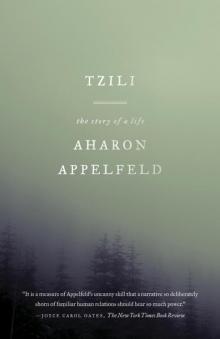 Tzili
Tzili The Conversion
The Conversion The Iron Tracks
The Iron Tracks All Whom I Have Loved
All Whom I Have Loved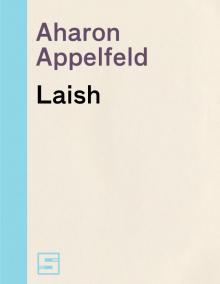 Laish
Laish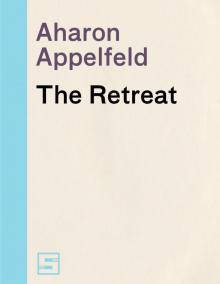 The Retreat
The Retreat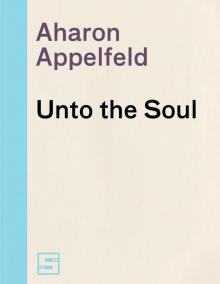 Unto the Soul
Unto the Soul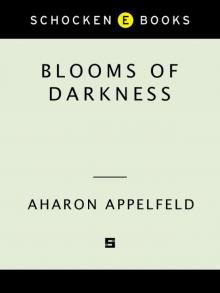 Blooms of Darkness
Blooms of Darkness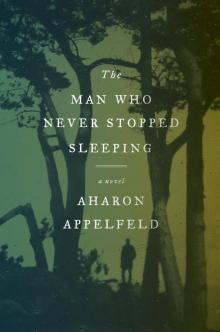 The Man Who Never Stopped Sleeping
The Man Who Never Stopped Sleeping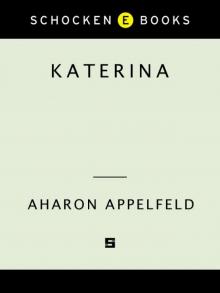 Katerina
Katerina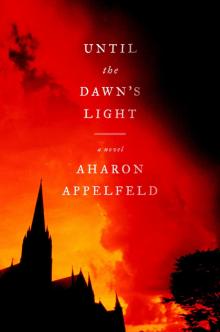 Until the Dawn's Light
Until the Dawn's Light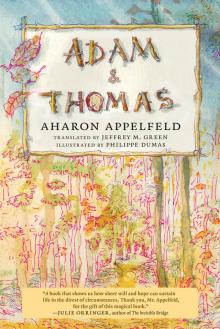 Adam and Thomas
Adam and Thomas Suddenly, Love
Suddenly, Love